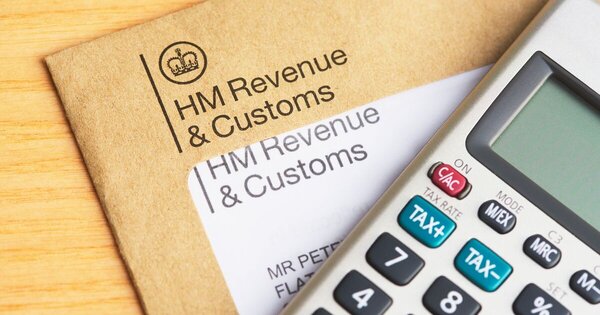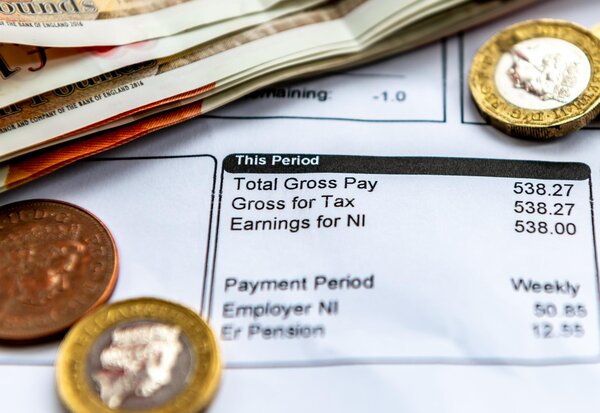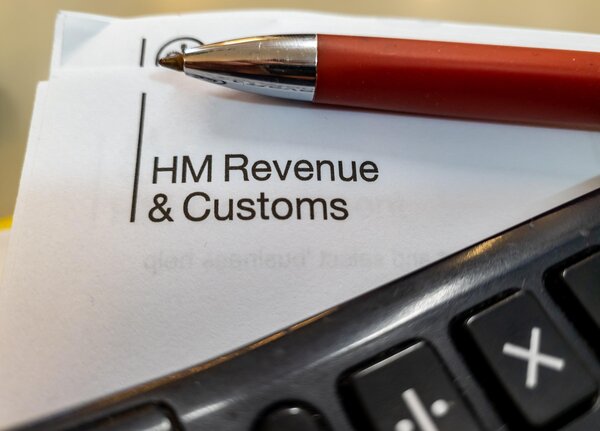UK Tax Reliefs for Creative Industries: A Simple Guide

The UK’s creative industries are a vital part of the economy, contributing innovation, culture, and significant revenue. To support businesses in this sector, the government offers several tax relief programs designed to reduce financial burdens and encourage growth. These reliefs cater to various creative fields, including film, animation, television, video games, theatre, and orchestras.
This guide provides a straightforward overview of the available tax reliefs, their eligibility criteria, and how businesses can make the most of these opportunities. Whether you’re a producer, developer, or creative entrepreneur, understanding these reliefs can help you optimize your resources and invest more in your craft
Creative Industry Tax Reliefs are government-backed incentives aimed at reducing the financial pressures on businesses within the UK’s creative sectors. These reliefs help companies by offering tax deductions or cash rebates, allowing them to reinvest in their projects and drive further innovation. Each relief is tailored to specific industries, from film production to video game development, ensuring businesses can access targeted support. By encouraging creative businesses to thrive, these reliefs not only boost the economy but also foster the development of unique content that resonates globally.What Are Creative Industry Tax Reliefs?

Creative Industry Tax Reliefs are government-backed incentives aimed at reducing the financial pressures on businesses within the UK’s creative sectors. These reliefs help companies by offering tax deductions or cash rebates, allowing them to reinvest in their projects and drive further innovation. Each relief is tailored to specific industries, from film production to video game development, ensuring businesses can access targeted support. By encouraging creative businesses to thrive, these reliefs not only boost the economy but also foster the development of unique content that resonates globally.What Are Creative Industry Tax Reliefs?

How it works:
You can claim up to 25% of your UK production costs as a cash rebate. Films with budgets of £20 million or less can claim 25% of their qualifying production costs, while larger budget films can claim 20%.
Animation Tax Relief (ATR) provides substantial financial support for companies involved in creating animated television programmes. If you’re in the business of creating animated television programmes, the Animation Tax Relief (ATR) can offer significant benefits. To qualify, your animation must:Animation Tax Relief (ATR)

Animation Tax Relief (ATR) provides substantial financial support for companies involved in creating animated television programmes. If you’re in the business of creating animated television programmes, the Animation Tax Relief (ATR) can offer significant benefits. To qualify, your animation must:Animation Tax Relief (ATR)

How it works:
Similar to the FTR, companies can claim back 25% of their qualifying UK production costs.
The High-end Television Tax Relief (HTR) is available to companies that produce high-budget TV programmes. To qualify, your production must:High-end Television Tax Relief (HTR)

How it works:
You can claim 25% of your qualifying UK expenditure, offering substantial savings on larger projects.
The Children’s Television Tax Relief (CTR) supports companies producing content specifically for children under 15. Qualifying criteria include:Children’s Television Tax Relief (CTR)

How it works:
As with the other reliefs, companies can claim 25% of qualifying UK production costs.
For video game developers, the Video Games Tax Relief (VGTR) can provide a significant tax break. To qualify, your video game must:Video Games Tax Relief (VGTR)

How it works:
Companies can claim up to 25% of their qualifying expenditure in the UK, which can be a major benefit, especially for smaller or indie game developers.
The Theatre Tax Relief (TTR) is designed for companies producing live theatrical performances. This includes plays, operas, and dance productions. To qualify, you must:Theatre Tax Relief (TTR)

How it works:
Companies can claim up to 25% of qualifying production costs for touring productions and 20% for non-touring ones.
The Orchestra Tax Relief (OTR) supports orchestras and similar musical ensembles. To qualify, the performance must:Orchestra Tax Relief (OTR)

How it works:
Like TTR, you can claim 25% of qualifying UK production costs.
The Museums and Galleries Exhibition Tax Relief (MGETR) helps support temporary and touring exhibitions. To qualify:Museums and Galleries Exhibition Tax Relief (MGETR)

How it works:
Museums and galleries can claim up to 25% of their qualifying production costs.
Eligibility Criteria

Pie.tax is a platform designed to simplify tax management for individuals and businesses in the UK, with tools to streamline self-assessment and empower users to navigate the complexities of tax systems efficiently. For businesses in the creative sector, understanding eligibility for tax reliefs is crucial to maximizing these benefits. To qualify for Creative Industry Tax Reliefs, businesses must meet specific criteria, which vary depending on the type of relief, including passing a cultural test or receiving certification, spending a minimum percentage of core expenditure within the UK or EEA, having production intent for public release, and meeting sector-specific requirements like those for Film Tax Relief or Video Games Tax Relief. By ensuring compliance with these criteria, businesses can unlock valuable financial support to fuel their creative endeavors, and Pie.tax makes it easier to navigate these requirements and file claims accurately.
Pie.tax is a platform dedicated to simplifying tax management for individuals and businesses in the UK. With tools designed to streamline self-assessment, Pie.tax empowers users to navigate the complexities of tax systems efficiently. For businesses in the creative sector, understanding eligibility for tax reliefs is crucial to maximizing these benefits.
To qualify for Creative Industry Tax Reliefs, businesses must meet specific criteria, which vary depending on the type of relief:
- Cultural Test or Certification
- Many reliefs require passing a cultural test or receiving certification from the British Film Institute (BFI) or other designated bodies. This ensures the project contributes to UK or European culture.
- Core Expenditure Threshold
- A minimum percentage of core expenditure must be spent on activities within the UK or European Economic Area (EEA). For example, High-End Television Tax Relief requires at least 10% of core costs to be UK-based.
- Production Intent
- The project must be intended for release or performance to the public. Internal or promotional projects typically do not qualify.
- Sector-Specific Requirements
- Each relief has unique eligibility rules. For instance:
- Film Tax Relief applies only to films for theatrical release.
- Video Games Tax Relief targets games that are culturally British and pass a stringent certification process.
By ensuring compliance with these criteria, businesses can unlock valuable financial support to fuel their creative endeavors. Pie.tax makes it easier to navigate these requirements and file claims accurately.
Key Takeaways

The UK offers a variety of tax reliefs specifically tailored to the creative industries.

Film, television, video games, theatre, orchestras, museums, and galleries can all benefit from reduced tax liabilities.

These reliefs are designed to make the UK a more attractive place for creative production, ensuring the continued growth of the sector.
If you think your project may qualify for any of these reliefs, it’s worth consulting with a tax advisor to ensure you’re claiming everything you’re entitled to. By understanding and utilising these reliefs, you can free up more funds to invest back into your creative ventures.
Need help with your taxes? At Pie, we’re here to support creatives in maximising their tax reliefs. Get in touch for expert advice tailored to your needs!
Frequently Asked Questions
What is the UK film tax incentive for 2024?
At Spring Budget 2024, the Chancellor announced the UK Independent Film Tax Credit (IFTC). Under IFTC , eligible films will be able to opt-in to claim enhanced Audio-Visual Expenditure Credit (AVEC), at a rate of 53%, on their qualifying expenditure.
What is classed as high-end TV?
High-end television programmes include dramas, comedies and documentaries. In addition to the main qualifying criteria for TV programmes, they must also meet the slot length and hourly cost conditions.
What is audio visual expenditure credit?
If you're a company claiming tax relief you can claim Audio-Visual Expenditure Credit (AVEC) on expenditure incurred from 1 January 2024 on: film, high-end TV programmes, children's TV programmes and animation.
How far back can you claim Theatre tax relief?
The TTR claim must be submitted within two years from the end of the accounting period. For example, a claim for the year ended 31 March 2024 must be submitted by 31 March 2026. But the sooner the TTR claim is submitted, the sooner the organisation will receive the cash repayment.
Can a creative industry business claim Research & Development (R&D) tax relief for innovative projects that don't result in a final product?
Yes, R&D tax relief can be claimed for qualifying research and development activities, even if the project does not result in a successful final product. The key criteria are that the project must involve significant innovation or an attempt to resolve scientific or technological uncertainty. Creative businesses, such as film production companies or digital media agencies, may be eligible if they are developing new techniques, processes, or technology.











